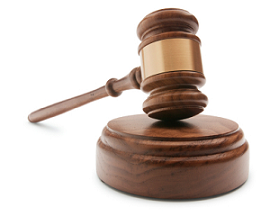A fiduciary duty is a requirement for a party to act in a way that furthers the best interest of another party – even to their exclusion of their own personal benefit. In business, certain relationships create heightened duties for at least one party involved. Commonly, duties exist between many types of: professionals and their clients, trustee and the trust’s beneficiaries, business partners among themselves, and a corporation’s directors and officers to the corporation and its shareholders.
Fiduciary Relationships
Fiduciary obligations are created whenever a relationship between the parties requires reliance, special trust, and confidence on the party becoming a fiduciary to exercise their discretion, judgment, or expertise when acting on behalf of the other party/parties (usually a client). A party cannot accidentally become a fiduciary – they must knowingly understand the confidence and trust placed in them to exercise their skills and judgment on the client’s behalf. Once the relationship is created, the fiduciary is legally prohibited from acting in any manner adverse to their client’s best interests.
Breach of Fiduciary Duty and Remedies
When fiduciaries fall short of their duties, New York allows injured parties to bring a claim for breach of fiduciary duty. Clients may be entitled to compensatory damages if they can prove:
- A fiduciary relationship existed;
- The fiduciary committed misconduct; and
- The fiduciary’s misconduct directly caused their damages.
In some situations, punitive damages and equitable relief are also merited.
When A Fiduciary Cannot Satisfy a Judgment and Pay Damages
Damage awards for breach of fiduciary duty can reach astronomical amounts, and individual plaintiffs and companies often cannot possibly satisfy the amount awarded by a judge or jury. This is particularly common in class action suits and in the aftermath of a Ponzi scheme implosion. The Bernie Madoff investment scandal resulted in multi-billion dollar losses, which would never have been satisfied by Madoff’s assets alone, which were only worth hundreds of millions of dollars.
Aiding and Abetting Liability
In cases such as this, victims of breach of fiduciary duty and fraud can often bring suit against other individuals that aid or abet that breach. Unless a state enacts laws of its own, usually only the Securities and Exchange commission can sue for aiding and abetting federal securities fraud. However, New York has taken the extra step and given victims the right to bring lawsuits seeking recovery from those who aid and abet the primary wrongdoer.
A party that aids and abets can be held liable for breach of fiduciary duty on the part of the primary party that owed the duty if he or she had knowledge of the party’s existing fiduciary duty and either procured the breach or substantially assisted with the breach. The aider or abettor may be ordered to help compensate victims for their damages.
MOWK LAW- New York Civil Trial Lawyers
The complexity of New York private litigant aiding and abetting claims in large-scale breach of fiduciary duty cases can be difficult to argue and even more confusing to navigate through the legal system. In these cases, it is advisable to turn to an experienced New York trial attorney. They can help you understand whether you have either viable claims or exposure for aiding and abetting as well as represent you through the course of litigation to ensure you obtain the best possible outcome. At MOWK Law, we are here to help- get in touch with us today to learn more.

